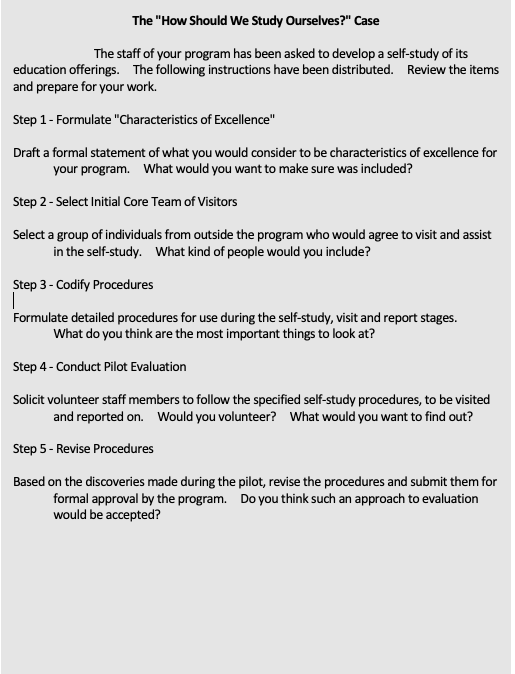I’ve written before about the need to take a closer look at college teaching, specifically at CUNY, as part of a larger strategy to improve student learning and increase postsecondary graduation rates. Unfortunately, a complex set of customs and rules regarding faculty rights and prerogatives make that look much more difficult than it should be. I think it is likely that we will only be able to really address the quality of college teaching if we’re able to develop a new understanding of faculty responsibilities.
There are three things we need to understand–academic freedom, tenure and faculty governance.
Academic freedom includes the freedom of faculty members to: 1) pursue all kinds of intellectual interests; 2) draw conclusions from that work and publish and distribute them; 3) determine which content should be included in courses; 4) present their views and opinions to students in courses and other academic settings, and 5) speak and act on matters of political convictions. Over time, starting in the 1940s, colleges and universities generally came to accept the principles of academic freedom as a way of ensuring that faculty members would not be pressured to think or teach in a particular way or be punished for thinking or teaching in different ways.
Tenure is, more or less, a guarantee of permanent employment. Faculty members, on what is considered to be the tenure track, are usually initially appointed at the rank of assistant professor and, if they receive good evaluations over time, they become eligible for promotion to associate professor and, eventually, professor. After a limited number of years, their position is formally reviewed to determine whether they should receive a permanent appointment in an academic department (such as history or economics) at the college. The initial decision to grant tenure is traditionally vested in a committee within the department but usually also requires the approval of one or more governance bodies (see below) and the consent of the college president. Applicants for tenure are expected to provide evidence of their effectiveness as: 1) scholars/researchers (mostly through the receipt of grants and publications), 2) teachers, and 3) members of the college community. However, for all practical purposes, it is scholarship and research that determine whether a faculty member will receive tenure.
Understandably enough, the goal of obtaining tenure is very much affected by the desire of people for job security. The denial of tenure essentially means the termination of employment. Furthermore, a denial of tenure at one institution frequently jeopardizes the possibility of obtaining a full-time position elsewhere—where the competition to fill open positions is often quite fierce. It should be kept in mind that the supply of individuals who possess the credentials (usually a doctorate) to be employed as a college faculty member far exceeds the number of full-time positions. [1]
And finally faculty governance—most colleges have formal by-laws that prescribe how the institution is to be governed when it comes to academic matters—such as courses, grades, eligibility for graduation, probation, etc. Of special concern is control over courses. At many colleges, including CUNY institutions, faculty members have almost total control over the courses and programs of study, including what courses all students have to take to complete a degree.
Far too often, faculty members imagine that their right to academic freedom and their authority over the curriculum, ultimately secured by tenure, entitles them to have fairly absolute control over how they should teach, what students should study and what students should do in order to pass courses and qualify for graduation—in spite of the possible adverse consequences of those decisions for students. By way of example, at most colleges, students are required to take a number of introductory courses that are intended to provide either an overview of the academic discipline or the first course in a sequence leading to a major (such as general biology). In both cases, the courses are typically characterized by attempts to cover an extraordinarily broad range of topics. Those courses frequently produce low average grades, high levels of failure (especially in the case of math and science) and disappointing levels of student understanding (in almost all disciplines). Poor grades, high failure rates and inadequate understanding combine to produce low graduation rates.
Unfortunately, many faculty members are unaware of the larger picture. They probably know a great deal about how students do in their courses; they may know quite a bit about how students do in other courses offered by their department; but they frequently know very little about the overall patterns of student success and failure—even when data on those patterns is quite readily available. Interested readers can find information on the graduation rates of almost all of the colleges in the metropolitan area on IPEDS (a US Department of Education web page at http://nces.ed.gov/ipeds).
If there is strong evidence that students either fail certain courses at very high levels or that they pass those courses but appear not to have learned very much, it should be incumbent upon the faculty to investigate and to promote the development of more effective pedagogies. In the case of the introductory courses mentioned above, it could mean that the content should be reorganized or that the traditional emphasis on breadth of coverage should be replaced. Similarly, if there is evidence that other academic policies and practices adversely affect the likelihood of student success (ultimately graduation), the faculty needs to take its share of the responsibility.
I don’t think that faculty members should invoke their rights and prerogatives as a way of avoiding responsibility. Instead, faculty rights and prerogatives should be situated within a new kind of faculty responsibility— a “fiduciary” responsibility where the faculty acts in the best interests of the students and not necessarily in their own interests. The best interests of college students today, in the great majority of institutions in this city and across the country, require a reinvention of what colleges do and how they do it. They especially require a whole new approach to teaching. Faculty members should become champions of that reinvention—even if it requires that they reconsider some very traditional ideas and practices.
It would be really interesting and exciting if developments regarding the quality of teaching at the postsecondary level could avoid some of the dead ends that characterize far too much discussion and policy in the K-12 world. The real point of taking teaching seriously is not to figure out ways of ever more precisely ranking teachers and figuring out which ones need to have a black mark placed next to their names. The point is to figure out how to change teaching for the better. It would be great if faculty at colleges and universities could lead the way.
John Garvey
[1] While tenure is often imagined to be a guarantor of academic freedom, it’s likely that it actually works against it—since candidates for tenure are sometimes reluctant to say or do anything that might jeopardize their chances.



Leave a Reply